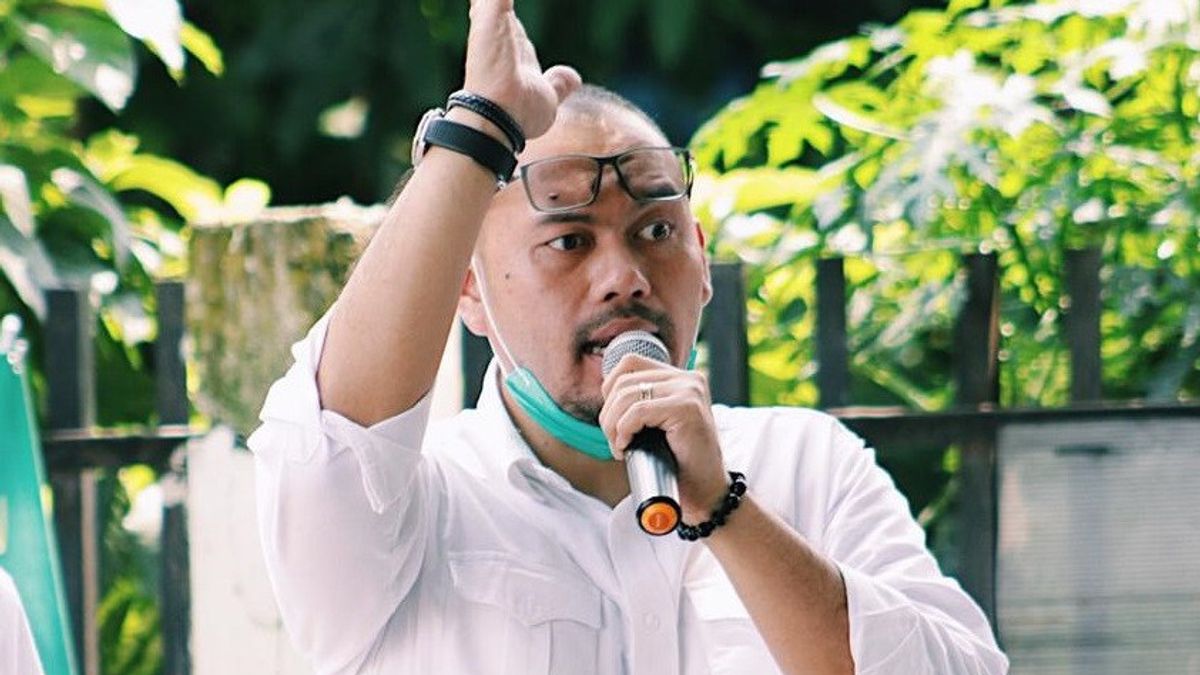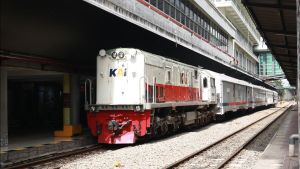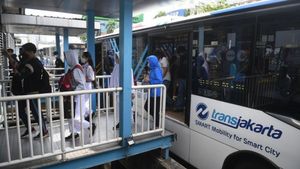JAKARTA - The General Chairperson of Turning Prosperous Communities (HMS) at the Center Hardjuno Wiwoho believes that the government's policy to ban homecoming ahead of the Eid al-Fitr celebration or Eid al-Fitr 2021 has not been effective. This is because the level of community compliance in implementing health protocols is lower than in the previous year.
Hardjuno revealed, basically homecoming activities before the Eid celebration have become part of the culture of people living in urban areas to return to their hometowns. Even religiously, he continued, there is a belief in the community to apologize to parents during the Eid momentum.
Thus, Hardjuno explained, this cultural and religious aspect further strengthens the public's desire to carry out homecoming, even though the government issued a policy to prohibit going home during the period 6-17 May 2021 which was conveyed directly by the Coordinating Minister for Human Development and Culture, Muhadjir Effendy.
"The ban on going home by the government does not automatically reduce the number of COVID-19 transmission. Because now people have begun to see the mobility of people to return to their hometowns. This ban on going home is an opportunity for people to return home before the implementation of the ban on going home," said Hardjuno. in Jakarta, Wednesday 5 May.
He further stated that the government's ban on going home before Lebaran 2021 was also strengthened by the Task Force for Handling COVID-19 through the issuance of Circular No. 13 of 2021 concerning the Elimination of the Idul Fitri Homecoming Day 1442 H and Efforts to Control COVID-19 During the Month of Ramadan 1442 H.
However, according to Hardjuno, it is likely that the ban is being ignored by the public, because so far most people think that the rate of transmission of COVID-19 has eased much less than the period leading up to Lebaran in 2020.
"In the last year alone, many people continued to go home, even though the government strictly prohibited the implementation of going home during the pandemic," he added.
He said that although the government will impose blockages at 333 points and a reversal sanction that will be effective on May 6-17, 2021, it is believed that the enthusiasm of the people to continue doing homecoming will not be completely stifled.
"There are still many 'rat roads' or alternative routes that travelers can take to return to their hometowns," said Hardjuno.
Hardjuno believes that the implementation of the rules on the prohibition of going home will be effective for most of the people who are civil servants (ASN), BUMN employees, members of the TNI / Polri and their families.
"But for the general public, the policy to prohibit going home is believed to be unable to run effectively," he said.
The reason is, said Hardjuno, so far there is an opinion from the public that the policy to prohibit going home, which in fact aims to reduce the number of COVID-19 transmission, is not in line with the government's steps to allow people to worship in mosques and allow tourist attractions to be reopened.
"So, I hope the government does not use double standards in making policies. One side of the community is prohibited from going home, but on the other hand, tourist attractions are opened. This is ambiguous, which makes people disobedient," he concluded.
The English, Chinese, Japanese, Arabic, and French versions are automatically generated by the AI. So there may still be inaccuracies in translating, please always see Indonesian as our main language. (system supported by DigitalSiber.id)













